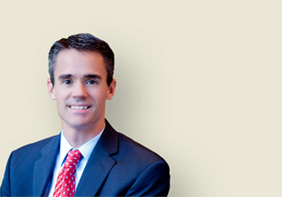The Mystery of Annual Returns
Maybe it’s just me, but I love it when I see or hear something that can help you (the client/investor) to get a clearer perspective so that you can tune out the “noise” and worry less about money. For example, if there was something that you could know (maybe again?) that reminded you how irrelevant it is to dwell on short-term returns with investments, would you want to know more about it?

I recently came across an article written by Doug Buchan, from our advisor community (full article is here if you want to read it). He reviewed the last 92 years of market history and made an illuminating observation.
First, he points out (like we have many times before) that the “stock market” (S&P 500) has averaged 10%/year over the last 92 years. You’ve probably heard that before. It’s these next two questions, however, where it starts to get fun:
- Question #1: out of all those years, how many times did the S&P 500 end a year with an average return between 8 and 10%?
- Question #2: out of all those same years, how many times did the stock market have a return higher than 20%, or worse than negative 20%?

Posted by:
Waypoint Wealth Management
What Are Three Ways That You (And We) Can Stay On Course?
We don’t expect people to fly their own airplanes or take out their kids’ appendixes, and yet we expect them to manage their retirement portfolios. In my careers I’ve done all three, and investing is by far the hardest.”
The Four Pillars of Investing
If we were to picture your retirement financial plan as an airplane flight, your investments are the trade winds carrying you toward your destination. How you invest can mean the difference between your arrival at your desired location … or it can knock you into a tail-spin.

To help you stay on course toward your own goals, we offer the “compass” of a solid investment strategy based on three key points. First, we have a strategy. Second, it’s a strategy based on reason and evidence guided by the durable science of capital markets. Third, it’s grounded in our fiduciary obligation to serve our clients’ highest financial interests. > SEE MORE

Posted by:
Waypoint Wealth Management
Well, How Do You Think About Your Retirement Income?
One of my favorite analogies for explaining retirement income is comparing it to taking water from a well. I realize that we’re fortunate and don’t need to do that much in this country, but let’s pretend that every day you go to a well to get your drinking water. Of course, you need to rely on it for providing you with water for a very, very long time. In order for the ability to quench your thirst for decades, you want to be sure you have enough of a supply of water at all times. But, you cannot control how much this particular well gets replenished with rain, so you would be careful to only take out the necessary amount to meet your needs, while not taking too much out and running a high risk of drying out the well. The level of the water, in the meantime, will rise and fall depending on the season you’re in – those rainy, plentiful seasons, and those dry and arid times when there isn’t any replenishment. Your job is to take what you need from the well, while having confidence in the ability to drink water even during those dry times. Through rainy seasons and dry ones, you need to be able to rely on a steady source of drinking water.
 Retirement income is similar to this, isn’t it? > SEE MORE
Retirement income is similar to this, isn’t it? > SEE MORE

Posted by:
Pete Dixon, CFP®
Partner and Advisor
What’s THE Most Important Thing You Can Do To Prepare For Retirement?
I was thinking about this question while reading an article a client sent to me. You can find the write-up here, and it’s a helpful “countdown to retirement” with many tips to consider as you approach retirement. As I looked through the list and thought about covering these issues with our own clients over the years, the question came to mind: what is the most important financial planning step you can take to feel great about your retirement plan?

It’s really a tough question since there are a lot of important issues to consider when “taking the leap” away from a career that you’ve had for so many years. Topics such as health insurance, do you have enough saved, are you invested properly, Social Security timing and others are obviously important to explore. There’s also the softer part of the equation: how will you spend and enjoy your time? Should you still work? How will you miss the social aspect of working and contributing?
But if I were forced to answer, what would I say is the most important question? That’s when I realized it’s the one that I have been recommending most lately when helping someone plan for retirement. It’s this simple question: how much do you need to live on (and how sure are you of that?)? > SEE MORE

Posted by:
Pete Dixon, CFP®
Partner and Advisor
Would You Pay For Your Doctor’s Trip To The Bahamas?
What if you knew that your doctor was more highly trained to sell you a specific drug that paid him much more money than any other suggestions he could make for you, even if it wasn’t in your best interest? On top of that, what if you knew that this doctor had sales targets where his income would increase drastically for selling enough of this medicine each month? He could provide you with advice and receive his standard fee, or he could suggest that you take this drug and he would receive $70,000. In addition, if he sold enough of this in a certain time period, the drug company would send him and his family to an all-expense paid, posh trip to the Bahamas. Does he maintain his ongoing education as a doctor? Sure, he does—enough to maintain his license. But more of his training these days is put toward attracting ‘customers’ into his office to convince them to buy this drug. I mean, why wouldn’t he? The opportunity is to make millions more per year, so he’d prefer to hone his skills with talking you into buying more of this drug, and getting to know your friends and family so he can sell it to them too.

Here’s a question for you: would you work with this doctor?
You might say “of course not!” And I certainly wouldn’t either. But what if I told you that this is exactly what is going on in the investment industry? > SEE MORE

Posted by:
Pete Dixon, CFP®
Partner and Advisor










